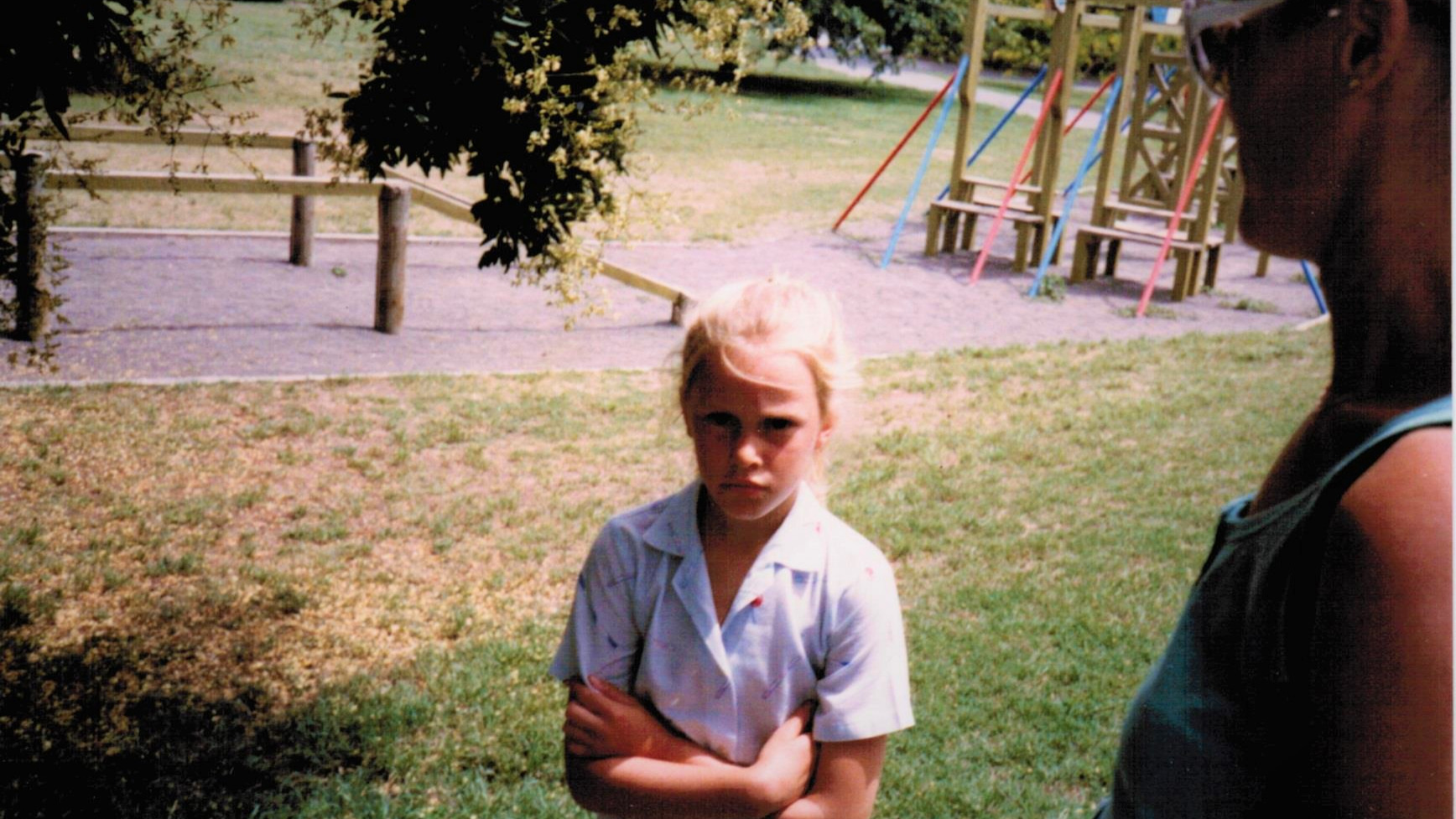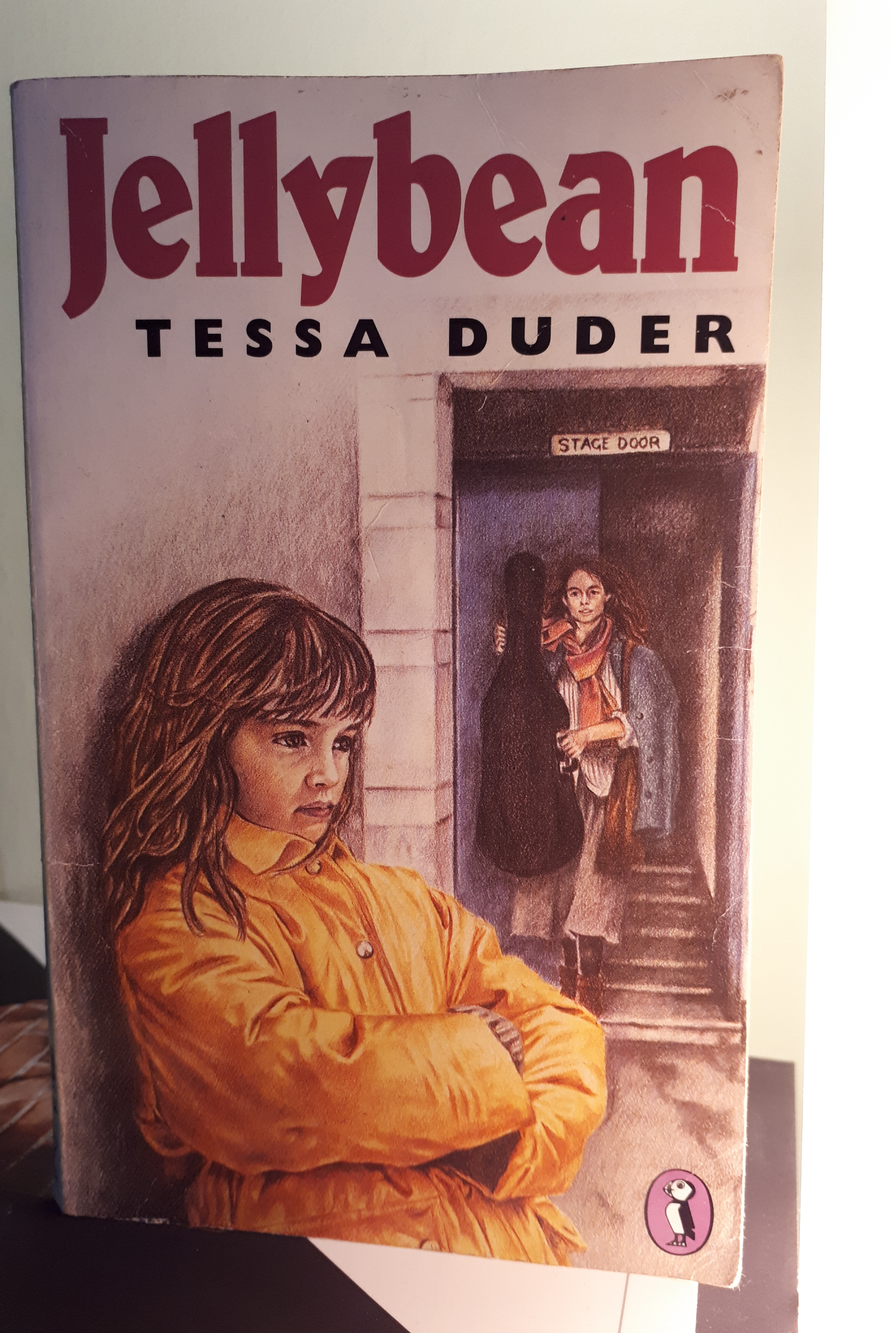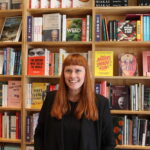Three years ago, give or take, Jane Arthur and Sarah Forster dreamed up The Sapling. One of the first stories on an early schedule of content was this: Jane’s books of her childhood. I am sure you will agree that this beautiful essay was worth the wait, as was Jane’s debut poetry collection, Craven, out now with VUP.

A life is made up of endless stories that can be told in endless ways. We each make our own connections between events and experiences; we place ourselves within our history, and sometimes apart from it. We experience surprise, find causation and correlation, and invent meaning. Sometimes, we trace things back to a point.
This story starts here: my childhood piano teacher’s husband was a prominent New Zealand artist.
Every week I’d walk along their covered path, from the tall, dark-stained wooden gate towards the door of the lesson room, past twists of metal, roller-skate wheels, old sacks, and disembodied dolls’ heads. This was late-1980s New Plymouth and I had no frame of reference for what I saw. I didn’t hate it – I just didn’t know what it meant or even what it was meant to be, and it’s hard to know how to feel about something if you don’t know at least one of these two things.
I didn’t hate it – I just didn’t know what it meant or even what it was meant to be, and it’s hard to know how to feel about something if you don’t know at least one of these two things.
I could never reconcile my piano teacher with her husband’s bold, eccentric art. It was wild and weird and sometimes funny, and she, to me, was old and stern and serious. (Could a piano teacher be anything else? Not when you’re seven and Jane.) Eventually, though, I’d discover that people might be more fun or kinder than you’ve let them be, and Jellybean by Tessa Duder played a part in teaching me that.

***
Jellybean was first published in 1985, two years before Duder’s best-known book, Alex. Like Kate De Goldi’s The 10 PM Question 20 years later, Jellybean was a finalist in both the children’s and adults’ New Zealand book awards.
On the author’s website, it’s described as ‘a gentle story about a young girl’s passion for music’ which, while true, misses out all the other things the book is ‘about’: loneliness, family, ambition, shyness, friendship. ‘Jellybean’ is the affectionate nickname given to the ten-year-old protagonist, Geraldine, by her single mother, a professional cellist. At one of her mum’s performances, Jellybean meets a man called Gerald, who says he’s an old friend of her mum’s. There’s no whiff of anything sinister, happily. She wonders if Gerald might be her father, partly due to their similar names. Gerald is an excellent adult character for a children’s novel: he’s terribly shy, awkward and sad, and that makes Jellybean act a little bolder than usual – she admits to him her dream of one day conducting an orchestra. It’s a lovely, quiet, relatable set-up, and it still mesmerises me today.
Jellybean is a step towards a coming-of-age story, which I’ve always had a soft-spot for – there’s something about crossing that threshold from childhood to adolescence, or from adolescence to young adulthood. Many of my favourite novels have protagonists that are either on the cusp of adolescence or newly at university. I love stories that show a tiny loss of innocence, a gently deepening maturity, a blowing out of a child’s small, self-absorbed universe as they process information about their wider world.
I love stories that show a tiny loss of innocence, a gently deepening maturity, a blowing out of a child’s small, self-absorbed universe as they process information about their wider world.
***
My piano teacher gave me Jellybean as a birthday present when I turned nine or ten. It was a horrible lovely surprise – I didn’t expect a present at all, and whenever I open a gift I’m always worried it will seem like I hate it even if I don’t, so I find myself either going overboard with mega-expressive delight or staying silent, both of which are dreadful strategies. Mine has been a life spent overthinking and avoiding surprises. Mostly, though, I was shocked: my piano teacher was kind? And all that time I thought she was scary? That’s how Jellybean – the book as an object – taught me not to judge people right away.
It quickly entered the exclusive cluster of books I re-read annually throughout childhood. I don’t remember when I got Harriet the Spy or Charlotte’s Web – somehow, they were always just there – or the first time I read them. But I do remember when I first read Jellybean, because I rarely loved books someone else chose for me.
I liked to choose my own books – other people read boring things. Sometimes I read poems by Pam Ayres, Sam Hunt or Leonard Cohen, happily letting them sail way, way over my head, or stories of extreme survival in my grandparents’ Readers Digests. But mostly, I liked modern-day American novels about girls older than I was, grabbed by the armload off the teen shelves of the New Plymouth Public Library. They made me feel mature and worldly. They were usually set in New England, where children rode buses through big cities alone and wore dungarees and ate hot lunches from trays in the school cafeteria and had older siblings away at college. Jellybean, though, was almost me: she was shy and my age and – massively – she lived in New Zealand.
Like me, Jellybean took piano lessons, half-grudgingly, while knowing they might be an investment in a more brilliant future. She claimed to crave less invisibility – she wanted to be noticed, seen, recognised – but at the same time seemed happy enough in her small, quiet world: the trinity of home, school, and her mother’s rehearsals. This tension was – and is – excruciatingly relatable to me. The introvert who wants greatness, but is easily embarrassed.
This tension was – and is – excruciatingly relatable to me. The introvert who wants greatness, but is easily embarrassed.
***
Piano lessons opened my life to a few great things: the pleasure of making nice sounds – thirds and fourths and counterpoint and, eventually, augmenteds and diminisheds; the almost meditative state of plonking away, forgetting other people can hear; understanding the mathematics of music on an emotional level; grabbing a new piece of music, giving it a go and recognising something taking shape.
But Mum would want me to play for guests. ‘I’m not a performing elephant,’ I’d moan. And Dad seemed to expect that, any minute now, I’d get up one Friday night in front of his mates at the Fitzroy Beach Surfriders’ Club and, um, jam.
As a child I was painfully shy – would literally hide from people – and often, frankly, grumpy. Even then, I was a pessimist-leaning realist and I knew that although I longed for piano to be a spectacular talent of mine, it simply wasn’t. I began to internalise a deep truth I’ve never been able to shake: that just because you do something, doesn’t mean you’re good at it. And therefore, like Jellybean, I’ve been embarrassed to admit to lofty ambitions.
Only now, almost 30 years later, am I beginning to add an extra layer to that early truth: it’s okay not to be good at something. It’s okay to just do the thing. Not everything has to be a competition, with others or – especially – yourself.
Only now, almost 30 years later, am I beginning to add an extra layer to that early truth: it’s okay not to be good at something. It’s okay to just do the thing.
If I want to, I can trace this lesson – three decades in the making – back to the day I was handed that slim parcel while seated at the shiny black Yamaha upright in my piano teacher’s studio in New Plymouth at the end of the 1980s. Because books – as objects and as stories – teach us there are many ways to capture and realise truths, and we need to tell our own, our way.

Jane Arthur
Jane Arthur's debut children's book, Brown Bird(PRH) was published in May 2024 to widespread acclaim. Jane is co-founder of The Sapling, co-owned and managed GOOD BOOKS, a small independent bookshop in Pōneke Wellington and has twice judged the NZ Book Awards for Children and Young Adults, in 2019 and 2020. Her debut poetry collection, Craven (VUP) won the Jessie Mackay Prize for best first book of poetry at the 2020 Ockham NZ Book Awards, and her second collection, Calamities!(THWUP) was longlisted for the Mary and Peter Biggs Award for Poetry in the 2024 Ockham Awards.



